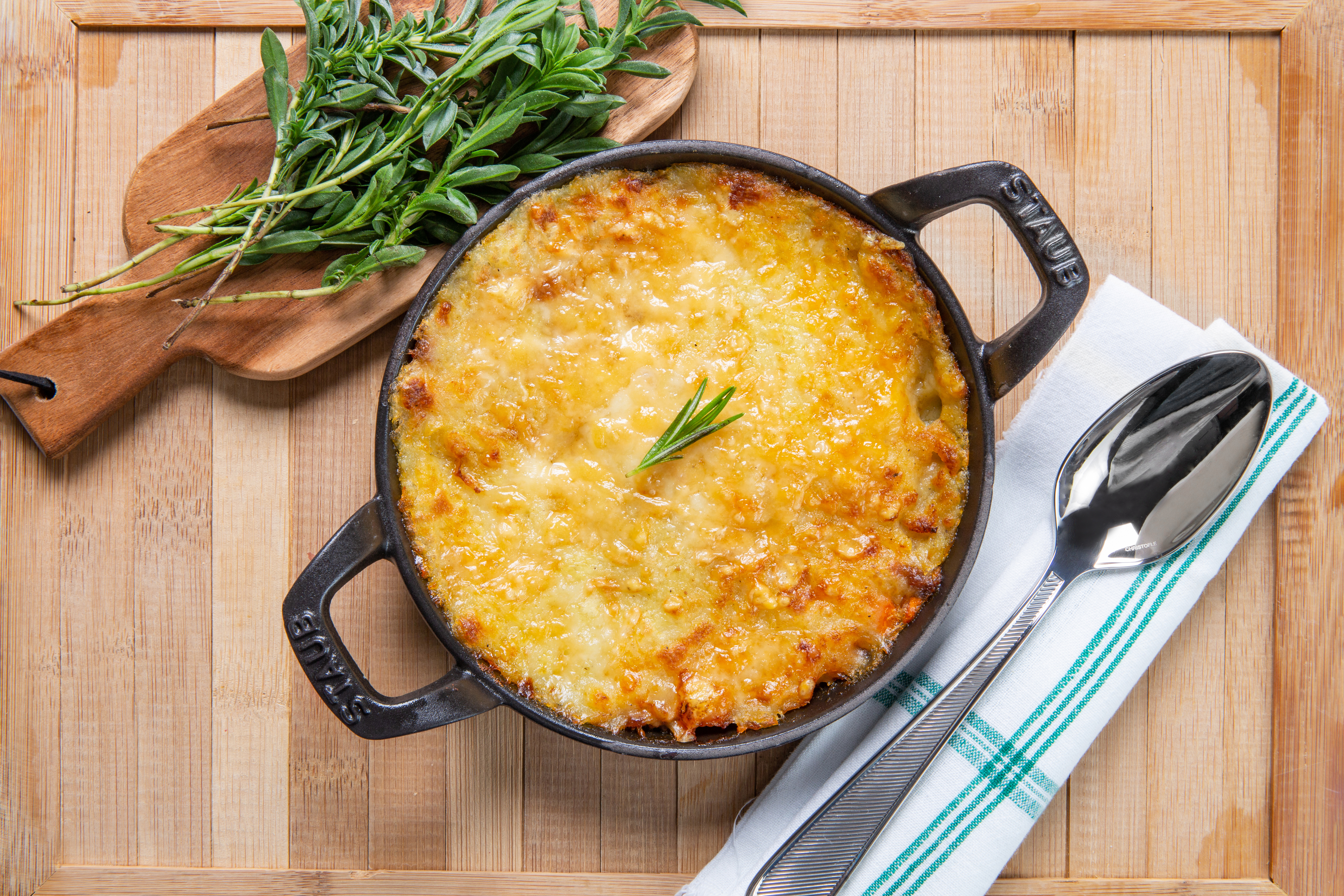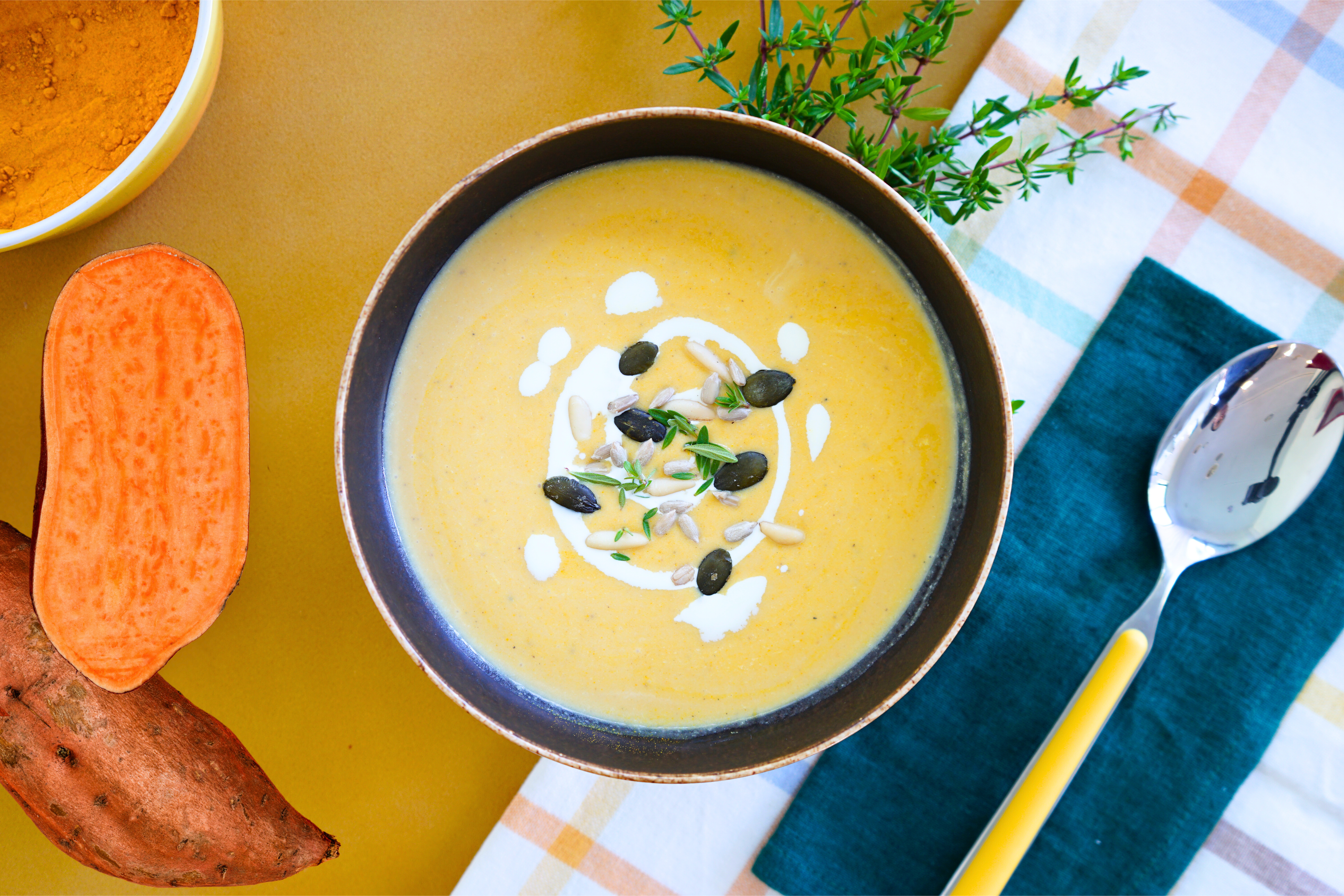Mashed Potatoes: How to Make Yours the Best

Hello, fellow foodies! Today, we're diving into the wonderful world of mashed potatoes. Whether you're preparing a hearty side dish for a family dinner or just craving some comfort food, we've got you covered with these top tips and an easy, delicious recipe for the best mashed potatoes you've ever tasted.
3 Top Tips for Making Great Mashed Potatoes
-
Choose the Right Potatoes: The foundation of perfect mashed potatoes lies in selecting the right potatoes. For fluffy and creamy results, opt for starchy potatoes like Russets or Yukon Gold. These varieties have a higher starch content and lower moisture, making them ideal for mashing. Avoid waxy potatoes like red potatoes, as they can result in a gluey texture.
-
Time your cooking carefully: To achieve soft and tender potatoes, start by cutting them into evenly sized chunks. Boil the potato chunks in salted water until they're fork-tender but not falling apart. Overcooking can lead to waterlogged potatoes, which will affect the final texture.
-
Add warm liquid, not cold: When mashing the cooked potatoes, use warm liquid (milk, cream, or a combination) to create that dreamy, creamy texture. Cold liquid can cool down the potatoes, leading to a clumpy mess. Warm the liquid before incorporating it into the mashed potatoes gradually, allowing you to control the consistency to your liking.
Easy & Delicious Mashed Potato Recipe
Now that you have the essential tips, let's get into the recipe! This classic mashed potato dish will delight your taste buds and make everyone at the table ask for seconds.
Ingredients:
- 2 pounds starchy potatoes (Russet or Yukon Gold)
- 1/2 cup milk (whole or 2% for creaminess)
- 1/4 cup unsalted butter
- Salt and pepper to taste
Instructions:
- Peel the potatoes and cut them into evenly sized chunks.
- Rinse the potato chunks in cold water to remove excess starch.
- In a large pot, bring salted water to a boil and add the potato chunks.
- Cook the potatoes until they are fork-tender but not mushy (about 15 minutes).
- Drain the potatoes and return them to the pot over low heat to let any remaining moisture evaporate.
- Mash the potatoes using a potato masher until no lumps remain.
- In a separate small saucepan, heat the milk and butter over low heat until the butter melts and the mixture is warm.
- Gradually pour the warm milk-butter mixture into the mashed potatoes while stirring until you achieve your desired consistency.
- Season with salt and pepper to taste.
How to Make Your Mashed Potatoes Perfectly Fluffy
To ensure your mashed potatoes turn out perfectly fluffy, it's crucial to avoid overmixing. Overmixing can lead to gummy, gluey mashed potatoes due to excess starch release. So, once you've added the warm milk and butter, mix only until incorporated. A few gentle stirs should do the trick!
What to Avoid When Making Mashed Potatoes
-
Overworking the Potatoes: As mentioned earlier, overmixing can ruin your mashed potatoes' texture, so be gentle when mashing and stirring.
-
Using a Food Processor or Blender: Using a food processor or blender might seem like a shortcut, but it's a sure-fire way to end up with gluey potatoes. These appliances tend to overwork the starches, leaving you with an unpleasant consistency.
-
Adding Cold Liquid: Always warm up your milk or cream before adding it to the potatoes. Cold liquid can make your mashed potatoes clumpy and unappetizing.
FAQ
Is milk or cream better for mashed potatoes?
Both milk and cream work well, but cream will result in a richer and creamier texture. For a lighter version, you can stick to milk, but consider using whole milk or 2% for better creaminess.
What are the best potatoes to use for mashed potatoes?
Starchy potatoes like Russets or Yukon Gold are best for mashed potatoes due to their fluffy texture.
Should I peel my potatoes before mashing?
Yes, peeling the potatoes is recommended for a smoother and creamier consistency. However, leaving the skin on can add a rustic touch if you prefer a chunkier mash.
Do I need to soak my potatoes in water before mashing?
No, you don't need to soak the potatoes. Simply rinse them in cold water to remove excess starch.
How can I store my mashed potatoes?
Store leftover mashed potatoes in an airtight container in the refrigerator for 3-5 days.
How can I reheat my mashed potatoes?
To reheat, gently warm the mashed potatoes on the stovetop over low heat. Add a splash of milk or cream and stir occasionally to maintain their creamy texture.
There you have it! With these tips, you'll be well-equipped to make the most delicious and fluffy mashed potatoes ever. So, roll up your sleeves, grab those potatoes, and let the mashing begin!
Tired of cooking?
Check out our meal delivery service and get tasty, nutritious meals delivered directly to your door.


.jpg)